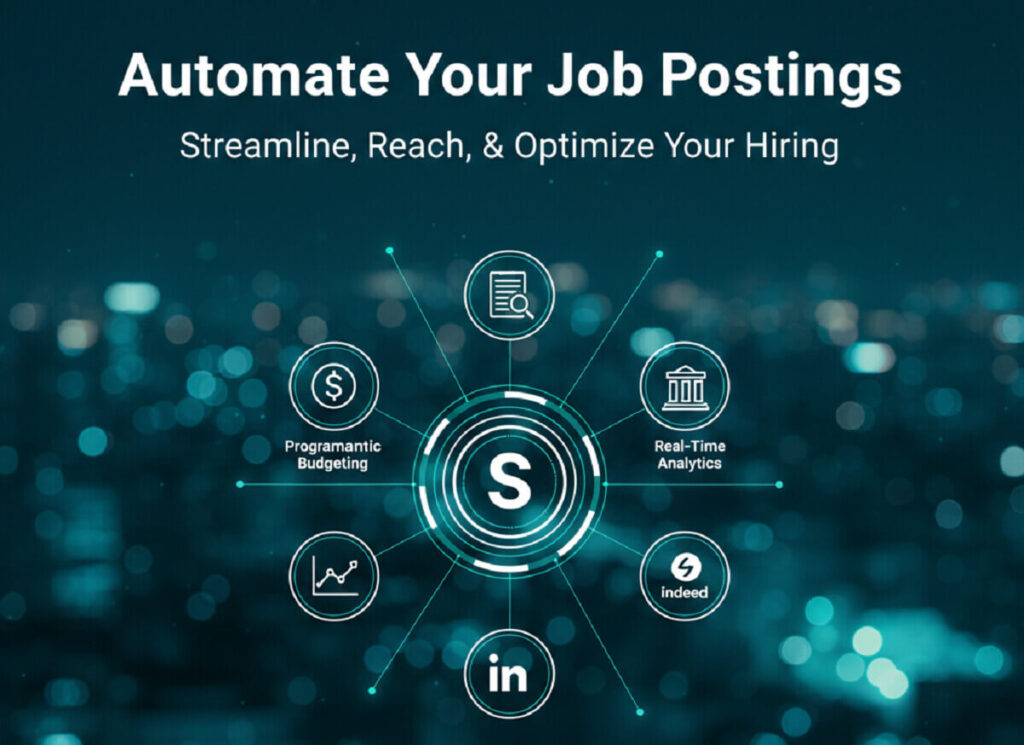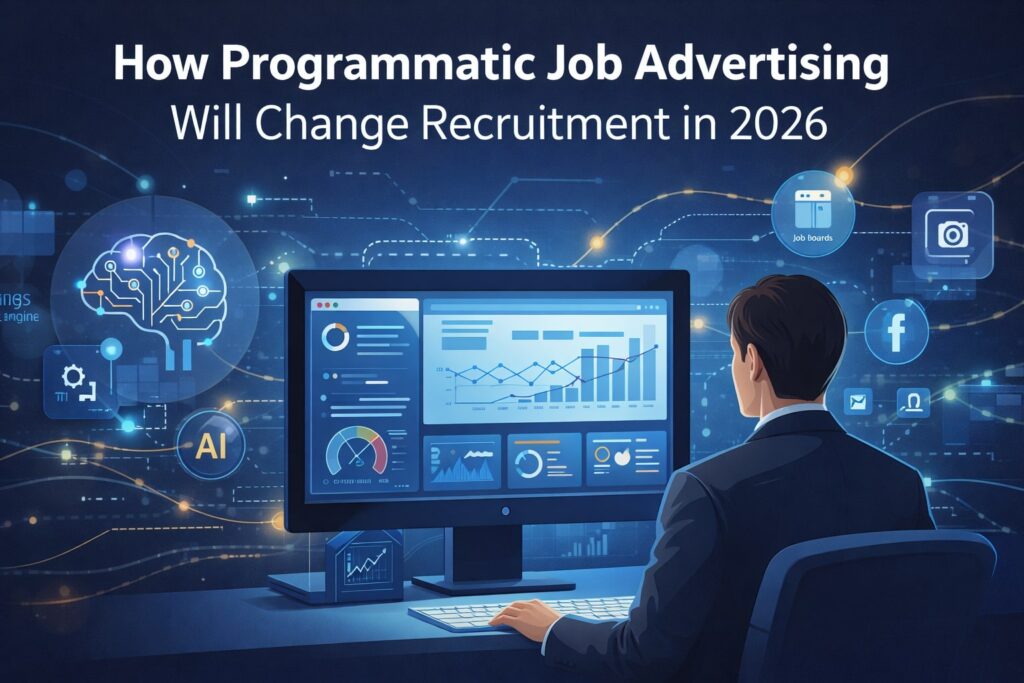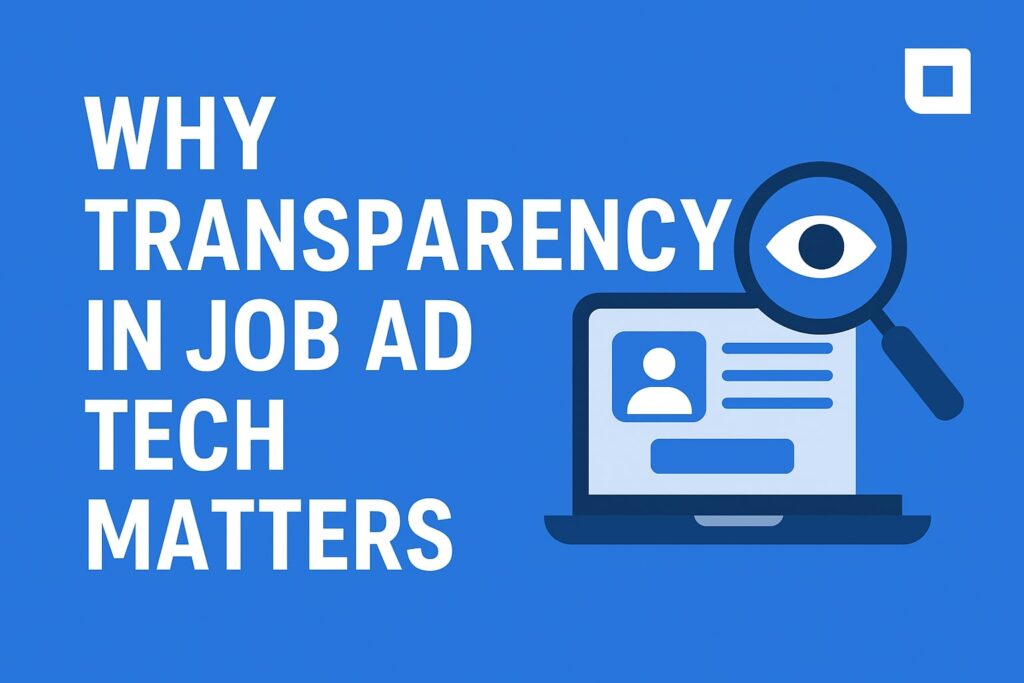In today’s fast-paced digital landscape, the recruitment process has evolved significantly. With the advent of technology, traditional methods of hiring have been replaced or complemented by more efficient and data-driven approaches. One such innovation that has gained prominence is the Programmatic Recruitment Platform.
This article aims to delve into the intricacies of these platforms, exploring what they are, how they work, and the benefits they offer to both employers and candidates.
Understanding Programmatic Recruitment Platforms
Programmatic Recruitment Platforms can be defined as sophisticated systems that utilize algorithms and data analytics to automate and optimize the hiring process. These platforms leverage artificial intelligence (AI) and machine learning (ML) technologies to streamline various recruitment tasks, from sourcing candidates to assessing their suitability for specific roles.
At its core, programmatic recruitment involves the use of data-driven insights to target and engage with potential candidates across multiple online channels. Unlike traditional recruitment methods that rely heavily on manual intervention, programmatic platforms automate many aspects of the hiring process, allowing recruiters to focus their efforts on strategic decision-making rather than repetitive tasks.
How Programmatic Recruitment Platforms Work?
Data Aggregation and Analysis: Programmatic recruitment platforms collect vast amounts of data from various sources, including job boards, social media platforms, professional networking sites, and internal databases. This data is then analyzed to identify patterns, trends, and potential candidates who match the desired criteria.
Targeted Advertising: Based on the insights gained from data analysis, programmatic platforms use targeted advertising techniques to reach potential candidates effectively. These platforms utilize algorithms to determine the most suitable channels and messaging strategies to attract the right talent.
Optimization and Performance Tracking: Throughout the recruitment campaign, programmatic platforms continuously monitor and optimize various parameters to maximize performance. This includes adjusting advertising budgets, refining targeting criteria, and fine-tuning messaging based on real-time feedback and performance metrics.
Candidate Engagement and Screening: Once candidates have been attracted to the job postings, programmatic platforms facilitate engagement through automated communication channels. This may involve sending personalized messages, conducting pre-screening assessments, and scheduling interviews seamlessly.
Data-driven Decision Making: By leveraging data analytics and predictive modeling, programmatic recruitment platforms empower recruiters to make informed decisions at every stage of the hiring process. From assessing candidate suitability to predicting future hiring needs, these platforms provide valuable insights that drive efficiency and effectiveness.
Benefits of Programmatic Recruitment Platforms:
Increased Efficiency: By automating repetitive tasks and streamlining the recruitment process, programmatic platforms save time and resources for recruiters. This allows them to focus on high-value activities such as candidate assessment and relationship building.
Enhanced Targeting: Programmatic recruitment platforms enable recruiters to target specific demographics, skill sets, and job roles with precision. This ensures that job postings reach the most relevant candidates, increasing the likelihood of finding the right talent.
Improved Candidate Experience: With features such as personalized messaging and seamless communication channels, programmatic platforms provide a positive experience for candidates throughout the recruitment journey. This helps in building employer’s brand reputation and attracting top talent.
Data-driven Insights: By analyzing vast amounts of recruitment data, programmatic platforms offer valuable insights into hiring trends, candidate behavior, and market dynamics. This enables recruiters to make data-driven decisions and adapt their strategies accordingly.
Cost-effectiveness: Programmatic recruitment platforms offer a more cost-effective solution compared to traditional hiring methods. By optimizing advertising spend and reducing time-to-hire, these platforms help organizations save money while achieving better results.
Challenges and Considerations:
While programmatic recruitment platforms offer numerous benefits, there are also some challenges and considerations to be aware of:
Data Privacy and Compliance: With the increasing focus on data privacy regulations such as GDPR, recruiters must ensure that programmatic platforms comply with relevant laws and regulations regarding data collection, storage, and processing.
Algorithm Bias: There is a risk of algorithm bias in programmatic recruitment platforms, where automated decision-making processes may inadvertently favor certain demographics or perpetuate existing biases. Recruiters need to be vigilant and regularly monitor and audit algorithms to mitigate this risk.
Integration with Existing Systems: Integrating programmatic recruitment platforms with existing HR systems and processes can be complex and may require significant time and resources. It’s essential to ensure seamless integration to maximize the benefits of these platforms.
Skills and Training: Using programmatic recruitment platforms effectively requires a certain level of technical expertise and training. Recruiters and HR professionals may need to undergo training to familiarize themselves with the features and functionalities of these platforms.
Why use a Programmatic Job Advertising Platform?
In today’s highly competitive job market, employers are constantly seeking ways to optimize their recruitment efforts and attract top talent efficiently. Programmatic job advertising platforms have emerged as a valuable solution, offering a range of benefits that make them a preferred choice for many organizations. Let’s delve into five compelling reasons why employers should consider using programmatic job advertising platforms:
1. Budget-Friendly:
Programmatic job advertising platforms offer a cost-effective approach to recruitment. These platforms allow employers to set specific budgets and bidding strategies based on their hiring needs and target audience. By leveraging automation and data analytics, programmatic platforms optimize advertising spend by allocating resources to channels and job postings that yield the best results. This ensures that employers get the most value out of their recruitment budget, maximizing ROI and reducing unnecessary expenses.
2. Quality Leads:
One of the primary goals of any recruitment strategy is to attract high-quality candidates who possess the skills and experience required for the job. Programmatic job advertising platforms leverage advanced targeting algorithms and data-driven insights to identify and reach potential candidates who are most likely to be a good fit for the role. By analyzing candidate behavior, demographics, and engagement patterns, these platforms ensure that job postings are effectively distributed to relevant audiences, increasing the likelihood of securing quality leads.
3. Transparency:
Transparency is essential in the recruitment process, both for employers and candidates. Programmatic job advertising platforms provide greater transparency by offering real-time performance metrics and analytics dashboards that enable employers to track the effectiveness of their recruitment campaigns. From the number of views and clicks to applicant demographics and conversion rates, these platforms provide valuable insights into the success of job postings, allowing employers to make informed decisions and adjust their strategies accordingly.
4. Efficient Productivity:
Time is of the essence in recruitment, and programmatic job advertising platforms help streamline the hiring process, saving valuable time and resources for employers. These platforms automate various tasks, such as job posting distribution, candidate sourcing, and communication, freeing up recruiters to focus on more strategic activities like candidate assessment and relationship building. By reducing manual intervention and optimizing workflow efficiency, programmatic platforms enhance overall productivity and accelerate time-to-hire, ensuring that employers can fill positions quickly with qualified candidates.
5. Higher Outcomes:
Ultimately, the primary goal of any recruitment strategy is to achieve positive outcomes in terms of hiring quality talent. Programmatic job advertising platforms deliver higher outcomes by combining the benefits of targeted advertising, data-driven decision-making, and automation. By reaching the right candidates with the right message at the right time, these platforms increase the chances of attracting top talent and making successful hires. Whether it’s filling niche roles, scaling recruitment efforts, or improving diversity and inclusion, programmatic platforms offer a strategic advantage that leads to better hiring outcomes for employers.
Thus, programmatic job advertising platforms offer a compelling array of benefits that make them a valuable asset for employers seeking to optimize their recruitment efforts. From cost-effective budget management to enhanced targeting capabilities and streamlined productivity, these platforms provide a comprehensive solution for modern-day talent acquisition challenges. By leveraging automation, data analytics, and transparency, programmatic platforms empower employers to secure quality leads efficiently and achieve higher outcomes in their recruitment endeavors.
Conclusion:
Programmatic Recruitment Platforms represent a significant advancement in the field of talent acquisition, offering a data-driven approach to hiring that enhances efficiency, effectiveness, and candidate experience. By leveraging AI, machine learning, and data analytics, these platforms enable recruiters to target and engage with the right talent more effectively than ever before. While there are challenges and considerations to be mindful of, the benefits of programmatic recruitment platforms far outweigh the drawbacks, making them a valuable tool for modern-day recruiters and organizations striving to stay ahead in the competitive talent market.
Sourcing Square stands out as the premier programmatic job advertising platform due to its unrivaled combination of advanced targeting algorithms, transparent analytics, cost-effective solutions, streamlined productivity, and superior outcomes for employers seeking top talent.




